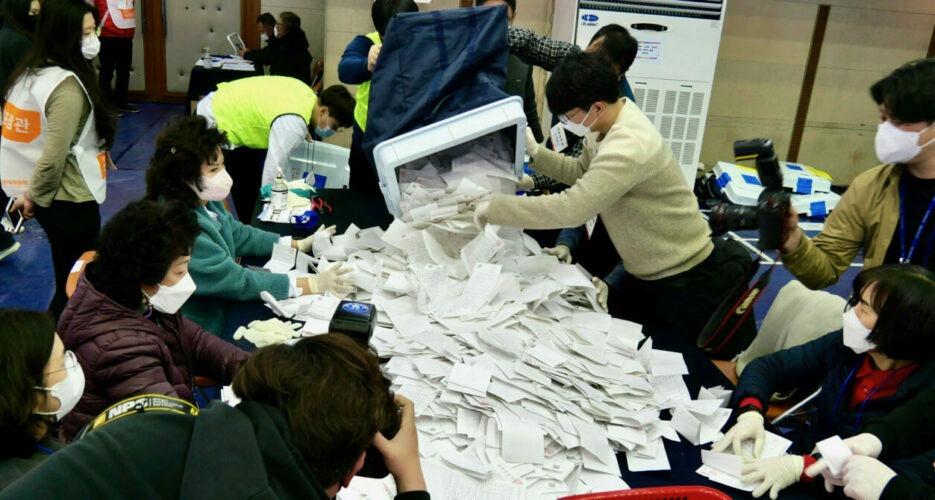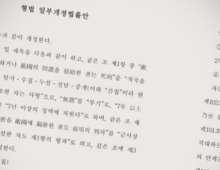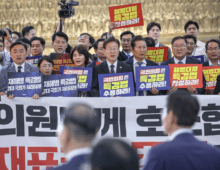Korea Pro answers some of the most frequently asked questions about the ROK’s complicated election system
Ballots are counted in Seoul during the 2022 presidential election, March 9, 2022 | Image: Korea Pro (file)
In the lead-up to South Korea’s general election this April, main opposition Democratic Party (DP) leader Lee Jae-myung has decided that the party will adhere to the semi-mixed-member-proportional (MMP) system, which the country adopted in 2020.
This decision comes despite the ruling People Power Party’s (PPP) criticism that the MMP system complicates the electoral process and potentially favors the DP through the use of satellite parties. The move has also been questioned by various other stakeholders, including other DP lawmakers.
In the lead-up to South Korea’s general election this April, main opposition Democratic Party (DP) leader Lee Jae-myung has decided that the party will adhere to the semi-mixed-member-proportional (MMP) system, which the country adopted in 2020.
This decision comes despite the ruling People Power Party’s (PPP) criticism that the MMP system complicates the electoral process and potentially favors the DP through the use of satellite parties. The move has also been questioned by various other stakeholders, including other DP lawmakers.
Get 30 days
of free access to
KoreaPro
Full access to all analysis
The KOREA PRO newsletter, every business day
Daily analysis on the top story of the day
The ability to suggest topics for coverage by our specialist team
Be smart about South Korea
Get full access to expert analysis and opinion.
Start now
No charges during your trial. Cancel anytime. A paid subscription will start after 30 days.
© Korea Risk Group. All rights reserved.
No part of this content may be reproduced, distributed, or used for
commercial purposes without prior written permission from Korea Risk
Group.












